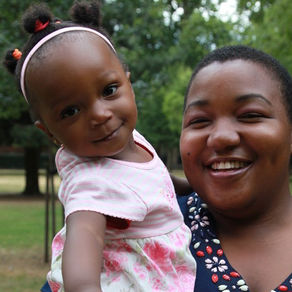
No Recourse to Public Funds
In partnership with Commonweal and Praxis Community Projects, the No Recourse to Public Funds (NRPF) project (2015-2022) provided safe housing and specialist immigration advice to destitute migrants with uncertain status.
In partnership with:
Why was the project needed?
The No Recourse to Public Funds (NRPF) condition is one of the leading causes of decision in the UK. The harmful policy makes individuals subjected to immigration control, ineligible for an array of support, including Universal credit, Housing Benefit and income-based job seekers’ allowance.
The Housing Solution
Working with Praxis Community Projects, the No Recourse to Public Funds (NRPF) project operated an innovative new cross-subsidy model of shared accommodation that simultaneously addressed the housing needs of migrant destitute families and single people.
With £2.3 million in social investment, Commonweal purchased seven properties to lease to Praxis, who provide housing management and specialist immigration advice and other required support to service users.
Praxis offered these properties to local authorities to house destitute migrant families under Section 17 of the Children Act 1989, ensuring good-quality accommodation instead of B&Bs and hostels. The income generated enabled Praxis to provide a number of free bed spaces to destitute single people not entitled to housing from the local authorities.
The accommodation was offered to those whom Praxis believed had a good chance of a positive outcome for their immigration application, with the aid of appropriate support and legal advice.
Project outcomes
-
Over the project's pilot, 13 councils referred 60 women and their 93 children to be housed and supported by the project.
-
Families in the project averaged a year to get a decision, compared to the 552 days for those elsewhere, due to tailored immigration advice from Praxis staff.
“It’s the place that’s given me light. It made me know the value of living.”
Praxis resident
Key Learnings:
In 2019, the NRPF project received its final independent evaluation after three years of development. The report captures the key strengths of the project as well as details of how the model could be replicated elsewhere.
Summary of the lessons learnt:
Immigration advice:
Immigration support from Praxis staff was an essential component in delivering positive outcomes for tenants, with many resolving their status more quickly. Upon joining the project, some were unclear about the status of their case due to having received poor-quality legal advice. The stability of specialists and tailored guidance, alongside safe accommodation, offered by Praxis enabled individuals to build trust with staff and better understand their situation.
Increased sense of wellbeing and social connection:
Families and single people supported by the project experienced an array of social and emotional benefits. In particular, mutual support in a shared living arrangement played a significant role in fostering friendships and peer support. Many also described feeling a newfound confidence after their involvement in the project, contributing to their long-term resilience.
Local authority engagement:
The project's funding income depends on local authorities purchasing bed spaces and recognising the service's value. Therefore, successful replication of the model requires positive engagement with local authorities to meet the specific needs of migrant families under Section 17 of the Children's Act. Providing bedspace for single destitute migrants could also be explored through alternative funding sources to support the project's core costs, as explored in the full evaluation report.
Benefits for local authorities:
Local authorities that referred clients to the project were able to support more complex cases, as they could rely on the support provided by Praxis staff. Additionally, local authorities paid less than the average annual cost for accommodation, which, along with the faster route to regularizing status offered by the project’s advice component, offered significant savings.
Kwame's story
Kwame is a 31-year-old male who comes from Ghana. He arrived in the UK with his mother in 1994 when he was 12. His mother made an application for asylum, which was refused. She was subsequently removed from the UK; however, Kwame was not. Instead he was taken care of by a neighbour whilst an appeal was lodged.
His case was lost in the UK Border Agency backlog (eventually known as Legacy cases) – cases that were started and due a response before 2007. In the meantime, Kwame established his life in the UK. He met his wife and had two children, all the while supporting himself by doing cash-in-hand work.
Kwame lodged a Human Rights application in 2008 based on the Right to Family Life to ensure that should the Home Office decide he can remain in the UK his family would also be able to remain. Kwame and his family were renting a house found for them through his church until recently when his landlady told him he had to leave.
At this point he sought housing advice from Praxis and discovered that his landlady was subletting illegally from an estate agent. Although the situation was discussed with the landlady, she refused any compromise or negotiations. The letting agent was made aware of the situation and so were the Police.
Unfortunately, it was too late for Kwame and his family as the landlady changed the locks whilst they were out and removed all their belongings to a storage space. Praxis provided Kwame and his family with accommodation in their temporary accommodation for people with NRPF, during which time his caseworker at Praxis requested an emergency assessment under S.17 of the Children Act.
As a result of Praxis’ intervention, social services subsequently accommodated Kwame and his family pending the outcome of his Human Rights application.
Related News:










